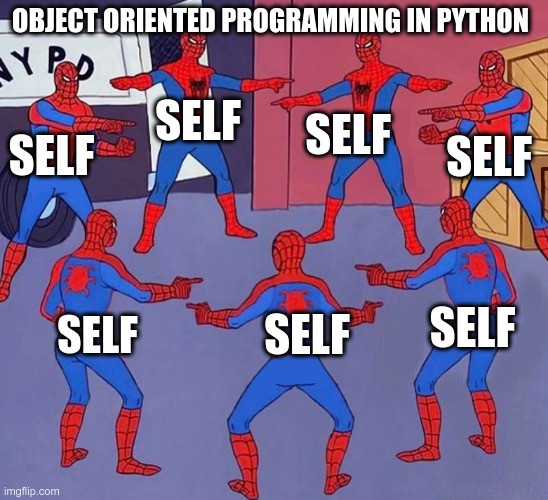this post was submitted on 22 Jul 2025
449 points (97.3% liked)
Programmer Humor
25180 readers
1632 users here now
Welcome to Programmer Humor!
This is a place where you can post jokes, memes, humor, etc. related to programming!
For sharing awful code theres also Programming Horror.
Rules
- Keep content in english
- No advertisements
- Posts must be related to programming or programmer topics
founded 2 years ago
MODERATORS
you are viewing a single comment's thread
view the rest of the comments
view the rest of the comments

Sorry, I'm too Rust-pilled for this OOP nonsense
Reminds me of java
I have
Toolkit toolkit = Toolkit.getDefaultToolkit();seared into my brain. Then there were the bean factories…At least with Rust, there is a specific, defensible goal for why it does that.
Java is just over designed. All of
java.ioreads like somebody's Object Orientated Programming 101 final project, and they'd get a B- for it. Lots of things where you can see how they're abstracting things, but there's no thought at all in bringing it together in a tidy way.Not like C# is all that much better. So much garbage in the fundamentals just because it was done that way at the start and "they can't change it now". The best example is the IList interface.
Theoretically this interface exposes both index-based access and collection-like modifications and as such would be perfect in a function if you need those two features on a type. In reality you can't use it as a function parameter because half the official types implementing IList aren't modifiable and throw a runtime error. E.g Arrays
Embrace the holy light of Dart
Oh god, I didn't knew that. That's funny.
That's a footgun sure but at least you can avoid it once you're aware of the problem.
I never write function signatures with mutable interfaces. It's always IEnumerable, IReadOnlyCollection, or IReadOnlyList; otherwise, use a concrete type. The latter is typical for private/protected methods that are called with instance members of a concrete type rather than public interfaces. If you want to mutate an object, you should own it. Public methods are invoked with data not owned by the instance.
For example, a lot of extension methods in LINQ have a signature IEnumerable --> IEnumerable, and internally the first thing they do is call .ToList(). The interface makes minimal assumptions about the input data, then puts it into a concrete type you can manipulate efficiently. You can similarly define a method for IReadOnlyList and explicitly make it mutable via .ToList(), rather than use IList and check .IsReadOnly. Both ensure correctness but the former does it at the type level, at design time, instead of relying on runtime checks.
C# is old and full of oldness. But it's also an excellent language that can be written beautifully if you know how. And there's lots of great code to learn from in the open-source dotnet core runtime repo and related projects.
Functional programming fixes the problem by simply not making it OO anymore, and while I'm personally a big fan of the paradigm there are situations where an OO approach is preferable (or even only to conform to a project's existing way of doing things).
What I described isn't necessarily functional. This is just a principle for ensuring objects represent clear and well-defined contracts. The idea is that to mutate something, you should own it; that means interfaces / public APIs, which can be called externally, should take immutable arguments. You can still mutate instance members internally because those are owned by the instance. If mutation is really necessary between two objects then it should be coordinated by an object owning them both.
Now my brain wants to relate Java somehow to beancounters.